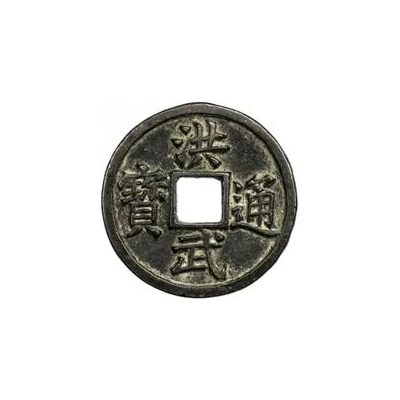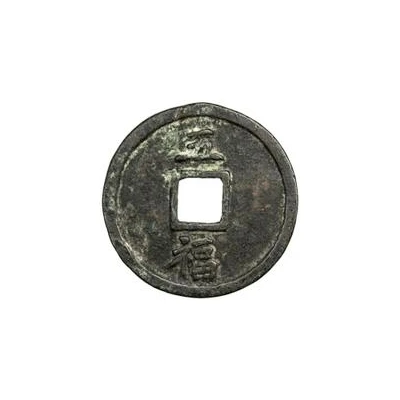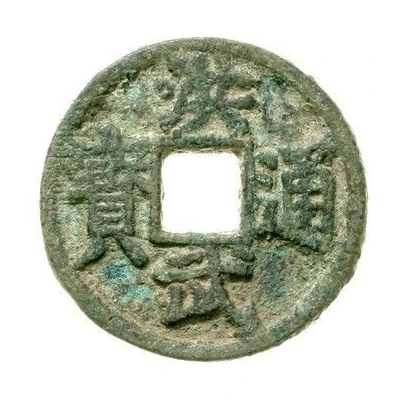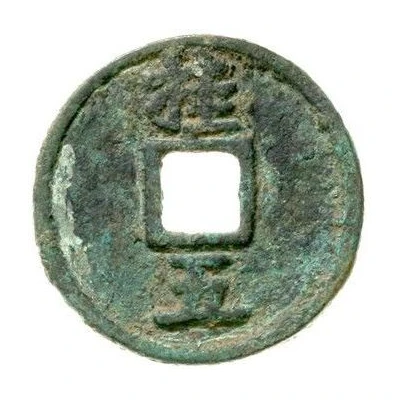5 Cash - Hongwu Tongbao; Guang ND
| Bronze | - | 40 mm |
| Issuer | Empire of China |
|---|---|
| Emperor | Ming dynasty › Hongwu (明太祖) (1368-1398) |
| Type | Standard circulation coin |
| Years | 1368-1393 |
| Value | 5 Cash |
| Currency | Cash (621-1912) |
| Composition | Bronze |
| Diameter | 40 mm |
| Shape | Round with a square hole |
| Technique | Cast |
| Orientation | Medal alignment ↑↑ |
| Demonetized | Yes |
| Updated | 2024-10-03 |
| Numista | N#222104 |
|---|---|
| Rarity index | 100% |
Reverse
One Chinese ideogram to the right and value to the left.
Lettering: 五廣
Translation:
Wu / Guang
5 Cash / Guangdong (mint)
Edge
Plain
Comment
Casting of Hongwu coins started in 1368, but was not continuous. Large coins were discontinued in 1371, with all minting being suspended from 1375 to 1376, then again from 1387 to 1389 (that time due to a copper shortage). Minting was finally stopped again in 1393 in favour of paper money.Interesting fact
One interesting fact about the Standard circulation coin 5 Cash - Hongwu (Tongbao; Guang) ND (1368-1393) from Empire of China made of Bronze is that it was used as a form of currency during the Hongwu Emperor's reign, who was the founder of the Ming dynasty. The coin was first introduced in 1368 and was used until 1393. It was made of bronze and had a round shape with a square hole in the center. The coin was divided into 10 subunits, each called a "qian," and was used for small transactions. The coin was also used as a symbol of power and authority, and the emperor's name and title were inscribed on the coin to signify his rule.



